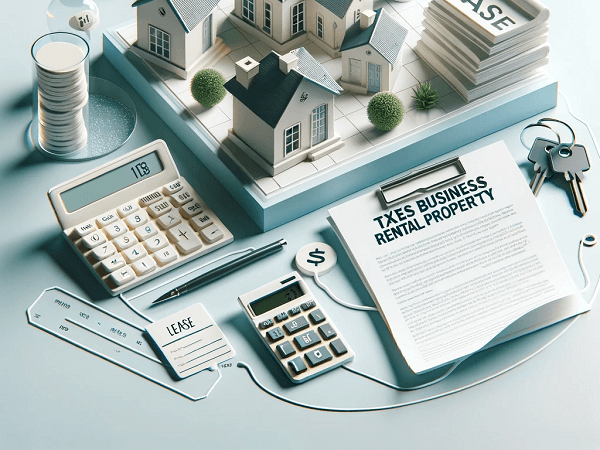When it comes to owning a small business and renting the space to conduct business, it’s important to understand how to write off the expenses on your taxes. This article will provide a comprehensive guide on how to properly report and deduct rental property expenses for different types of businesses.
Reporting Rental Property of Sole Proprietorship
For sole proprietors, the process of reporting rental property expenses is relatively straightforward. When filing your business and personal income taxes together on Form 1040, enter your business rental property expenses in the “Expenses” section of Schedule C. This includes rent, maintenance, utilities, wages, taxes, licensing fees, insurance, and the cost of repairs on the property. By subtracting your total expenses from your gross income, you can determine your net profit or loss. Transfer this amount to the “Business Income or Loss” line on Form 1040.
Writing Off Rental Property of Partnership or LLC Partnership
Partnerships operate differently when it comes to taxes. Although the partnership itself does not pay taxes, it must file an annual information return to report the business operations. The profit or loss of the partnership is passed through to the partners, who must report it on their personal income tax returns. To write off the partnership’s rental expense, enter the amount paid for rent in the “Deductions” section on Form 1065. Include any other business expenses in this section as well. Subtract the partnership’s total income from the deductions to determine the business income or loss. Divide the net income or loss according to your agreement and report the information on Schedule K-1. Each partner must receive a Schedule K-1 and use it to report their personal portion of the partnership’s income or loss in “Part II” on Schedule E. Calculate the total income or loss and transfer this amount to the line labeled “Rental Real Estate, Royalties, Partnership, S Corporations or Trusts” on Form 1040.
Rental Property of Corporation or LLC Corporation
Corporations have their own tax filing requirements. When reporting income taxes, corporations must file an individual tax form, Form 1120. In the “Deductions” section of the form, enter the amount of rent paid for the rental property. Include any other business expenses in the appropriate line and subtract the total expenses from the corporation’s total income. By completing Form 1120, you can determine the amount of tax your corporation owes the IRS.
S Corporation: Writing Off Taxes on Rental Property
S corporations, similar to standard corporations, file a tax return as an entity. To report rental expenses, use Form 1120S and enter the amount of your rental expense in the “Deductions” section. Include any other business expenses and subtract the total expenses from the business’s total income. By completing Form 1120S, you can determine the amount of taxes your business owes.
In conclusion, understanding how to write off taxes on small business rental property is crucial for business owners. By following the appropriate tax forms and reporting procedures based on the type of business entity, you can ensure that you are deducting the rental expenses correctly and maximizing your tax benefits.




